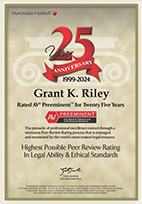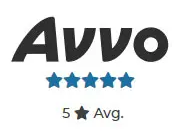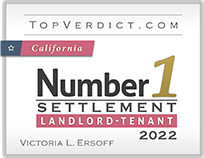Housing in California can be challenging, with its high demand, escalating rents, and occasional negligence from landlords. However, renters have rights that protect their well-being, safety, and stability. Knowing these rights is the key to protecting yourself from unlawful practices and ensuring that you and your family can live in a safe, fair, and habitable environment.
California Tenant Protection Act (AB 1482)
Introduced in 2019, the California Tenant Protection Act (AB 1482) is a landmark piece of legislation aimed at providing renters with stronger safeguards against unjust evictions and excessive rent hikes. It is a foundation of security for millions of tenants across the state.
Key Protections Include:
- Rent Cap Limits
AB 1482 caps annual rent increases to 5% plus the local rate of inflation or 10% of the lowest rent charged in the past year, whichever is lower. This is designed to protect renters from exploitative rent hikes.
- Just Cause Eviction Protections
Landlords cannot evict tenants without providing a valid reason after 12 months of occupancy. Valid reasons, or "just cause" evictions, include nonpayment of rent, violation of the rental agreement, criminal activity, or when a landlord decides to remove a unit from the rental market altogether.
- Relocation Assistance
Tenants evicted under a “no-fault” just cause (like a landlord moving into the unit) are entitled to relocation assistance or one month’s rent as compensation.
However, it’s important to know that not all rental properties fall under AB 1482. Single-family homes and condos are exempt unless owned by corporations, and units built within the last 15 years are also excluded. If you're unsure about your coverage, it’s critical to consult the law’s specifics or seek legal guidance.
Habitability Standards
California law ensures landlords provide a habitable living environment. This means your landlord is legally responsible for maintaining your rental unit in a safe and livable condition.
What does “habitable” mean?
Under California Civil Code § 1941.1, landlords must address essential habitability issues, such as functioning utilities, adequate heating, pest-free conditions, and the absence of hazardous substances like lead or mold. Substandard housing violates these laws, and landlords who fail to uphold these standards can be held accountable.
If you’re living in a rental unit that fails to meet these conditions, you have the right to demand repairs. Be sure to document issues thoroughly by taking photos, keeping records of communication with your landlord, and considering legal action if the problem persists.
Anti-Retaliation Protection
Retaliation from landlords is a real concern for renters who stand up for their rights. California law protects tenants from retaliatory actions.
If you’ve complained to your landlord about habitability issues or exercised your legal rights (such as reporting a health violation or joining a renters’ union), your landlord cannot raise your rent, serve you an eviction notice, or take other retaliatory actions against you. If retaliation occurs, you may be able to file a claim and recover damages.
Security Deposits
Security deposits are an area fraught with potential misuse by landlords. California law has strict limits on how security deposits are used and requires the timely return of the deposit when your tenancy ends.
Your Rights Include:
- The total security deposit cannot exceed two months’ rent for unfurnished units or three months’ rent for furnished units.
- Landlords must provide an itemized statement explaining any deductions from your deposit and return the remaining balance within 21 days of your move-out date.
- Deductions can only be made for unpaid rent, necessary cleaning, or repairs for damages beyond normal wear and tear.
If you believe your landlord has unlawfully withheld your security deposit, you have the right to take legal action to recover it.
Rent Control Regulations by City
Several cities in California have their own rent control regulations that offer additional protections beyond state laws. Popular cities like Los Angeles, San Francisco, Oakland, and Santa Monica have rent control measures that govern rent increases and tenant rights.
If you live in one of these cities, educate yourself about local laws and how they interact with statewide protections. This knowledge can be crucial when negotiating rent or addressing unfair treatment.
Roommate and Subletting Rules
If you plan to share your rental or sublease it, it’s essential to understand California’s laws around co-tenancy and subletting. While California law does not outright prohibit subletting, your rental agreement’s terms take precedence. Always check your lease for subletting clauses or requirements for landlord approval.
Unauthorized subletting can lead to eviction, so it’s important to follow all rules and communicate openly with your landlord before making arrangements.
Why Understanding Your Rights Matters
Landlords, like any other party in a legal agreement, sometimes fail to meet their obligations. Countless renters across California live with unreasonable rent increases, poor housing conditions, or unjust treatment simply because they are unaware of their rights.
When renters are informed, they’re empowered. Tenant protection laws are there to ensure fairness, safety, and transparency in rental housing. By understanding these laws, you protect yourself, your family, and your financial future.
What to Do if Your Rights Are Violated
If you believe your landlord has violated your rights, take these steps immediately:
- Document Everything: Take photos, save messages, and keep records of interactions with your landlord. Evidence is critical in proving your case.
- Send Written Notices: Communicate your concerns formally via email or letter to establish a record of your complaints.
- Report to Authorities: For habitability issues, contact your local housing authority or health department.
- Seek Legal Assistance: If the problem persists, consult an attorney who specializes in landlord-tenant law.
Getting Help From a Tenant Rights Attorney in Los Angeles
Tenant protection laws in California are your safety net in a challenging housing market. They’re here to empower you, offering fair boundaries for landlords and providing remedies for mistreatment.
At Riley Ersoff, we are dedicated advocates for renters facing abusive practices and substandard housing. We fight to hold negligent landlords accountable and ensure California renters can live with the dignity and safety they deserve.
If you’re uncertain about enforcing your rights or if you feel stuck in an unfair situation, seeking qualified legal help can make all the difference.
Reach out to us at (888) 658-9695 to learn how we can assist you in standing up for your rights as a tenant.



















